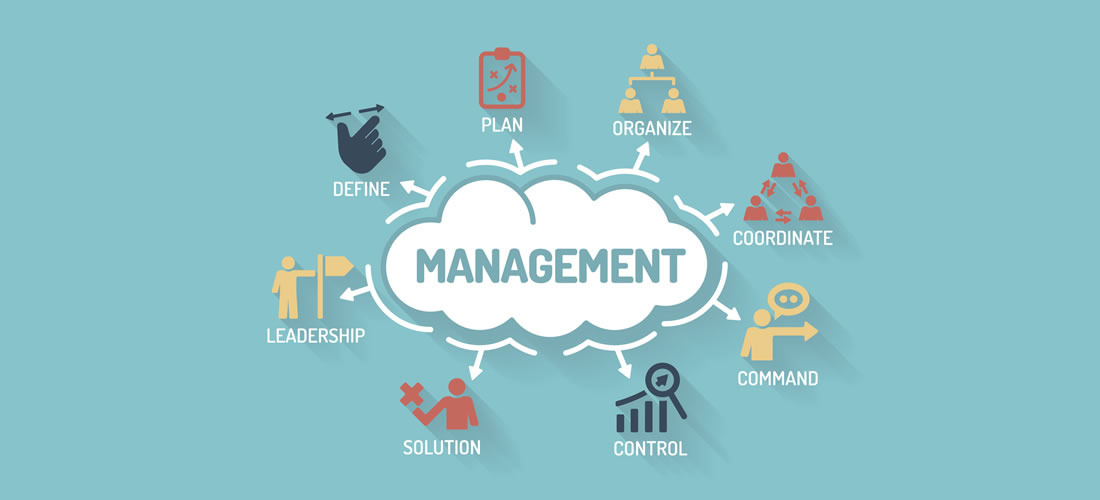From the time we learn to speak, we’re told that if you don’t have anything nice to say, don’t say anything at all. When you become a manager, it’s your job to say it—and your obligation.
Kim Scott, author of Radical Candor: Be a Kick-Ass Boss Without Losing Your Humanity, shares her thoughts on what makes for a great boss. The premise is simple: to be a good boss, you have to Care Personally at the same time that you Challenge Directly. When you challenge without caring it’s obnoxious aggression; when you care without challenging it’s ruinous empathy. When you do neither it’s manipulative insincerity.
Interested in learning more about Kim’s philosophy? Check out this excerpt from her latest book.
Like most of us, I once had a terrible boss—a person who thought that humiliating people was a good way to motivate them. At one point, a colleague mistakenly copied me on an email chain in which my boss had ridiculed me repeatedly to my peers. When I confronted my boss, he told me not to worry my “pretty little head” about it. Really.
Partially as a result of this experience, I started my own company—Juice Software. My goal was to create an environment where people would love their work and one another. Friends often laughed when I said that, as if I were talking about a commune instead of a company. But I was serious. I spent a lot more than eight hours a day at my job. If I didn’t enjoy my work and my colleagues, the majority of my brief time on this planet would be unhappy.
Unfortunately, while I did succeed in avoiding the mistakes my boss had made—that was easy—I made a very different set of mistakes. In an effort to create a positive, stress-free environment, I avoided the difficult but necessary part of being a boss: telling people clearly and directly when their work wasn’t good enough. I failed to create a climate in which people who weren’t getting the job done were told so in time to fix it.
When I look back on that time, my mind immediately goes to a person I’ll call “Bob.” Bob was one of those instantly likeable people who make going to work a pleasure. He was a kind, funny, caring, and supportive colleague. What’s more, he came to me with a stellar résumé and great references. He seemed to be an A-plus hire, and I was thrilled to have him. There was just one problem: his work was terrible. He lost my confidence shortly after we’d hired him. He’d been working for weeks on a document to explain that Juice allowed people to create Excel spreadsheets that updated automatically. When I reviewed the document he’d been working on so diligently, I was shocked to discover that it was totally incoherent—a kind of word salad. And thinking back to when he handed it over to me, I then realized that Bob also knew his work wasn’t good enough—the shame in his eye and the apology in his smile when he handed it over to me had been were unmistakable.
Let’s stop right here for a second. If you’re a manager, you know already that this was a hinge moment in the relationship between Bob and me, and a significant bellwether of success or failure for my team. Bob’s work wasn’t even close to good enough. We were a small company, struggling to get on our feet, and we had zero bandwidth to redo his work, or to pick up his slack. I knew this at the time. And yet, when I met with him, I couldn’t bring myself to address the problem. I heard myself tell Bob that the work was a good start and that I’d help him finish. He smiled uncertainly and left.
What happened? First, I liked Bob, and I didn’t want to come down too hard on him. He had looked sufficiently nervous during the meeting when we reviewed his document that I feared he might even cry. Because everyone liked him so much, I also worried that if he did cry, everyone would think I was an abusive bitch. Second, unless his résumé and references were bogus, he’d done great work in the past. Maybe he’d been distracted by something at home or was unused to our way of doing things. Whatever the reason, I convinced myself that he’d surely return to the performance level that had gotten him the job. Third, I could fix the document myself for now, and that would be faster than teaching him how to re-write it.
Let’s first deal with how this affected Bob. Remember, he knew his work wasn’t good, and so my false praise just messed with his mind. It allowed him to deceive himself into thinking that he could continue along the same course. Which he did. By failing to confront the problem, I’d removed the incentive for him to try harder and lulled him into thinking he’d be fine.
It’s brutally hard to tell people when they are screwing up. You don’t want to hurt anyone’s feelings; that’s because you’re human. You don’t want that person or the rest of the team to think you’re a jerk. Plus, you’ve been told since you learned to talk, “If you don’t have anything nice to say, don’t say anything at all.” Now all of a sudden it’s your job to say it. You’ve got to undo a lifetime of training. Feedback is hard.
To make matters worse, I kept making the same mistake over and over for ten months. As you probably know, for every piece of subpar work you accept, for every missed deadline you let slip, you begin to feel resentment and then anger. You no longer just think the work is bad: you think the person is bad. This makes it harder to have an even-keeled conversation. You start to avoid talking to the person at all.
And of course, the impact of this didn’t stop with Bob: others on the team wondered why I accepted such poor work, but, following my lead, they too tried to cover for him. They would fix mistakes he’d made and do or redo his work, usually when they should have been sleeping. Covering for people is sometimes necessary for a short period of time—say if somebody is going through a crisis. But when it goes on too long it starts to take a toll. People whose work had been exceptional started to get sloppy. We missed key deadlines. Knowing why Bob’s colleagues were late, I didn’t give them too hard a time. Then they began to wonder if I knew the difference between great and mediocre; perhaps I didn’t even take the missed deadlines seriously. As is often the case when people are not sure the quality of what they are doing is appreciated, the results began to suffer, and so did morale.
As I faced the prospect of losing my team, I realized I couldn’t put it off any longer. I invited Bob to have coffee with me. He expected to have a nice chat, but instead, after a few false starts, I fired him. Now we were both huddled miserably over our muffins and lattes. After an excruciating silence, Bob pushed his chair back, metal screeching on marble, and looked me straight in the eye. “Why didn’t you tell me?”
As that question was rolling around in my mind with no good answer, he asked me a second question. “Why didn’t anyone tell me? I thought you all cared about me!”
It was the low point of my career. I had made a whole series of mistakes, and Bob was taking the fall. Not only was my earlier praise a head-fake, I’d never given Bob any criticism. I’d also never asked him to give me feedback, which might have allowed him to talk things through and perhaps find a solution. Worst of all, I’d failed to create a culture in which Bob’s peers would’ve done him the courtesy of telling him when he was going off the rails. The team’s cohesion was cracking, and it showed in our results. Lack of either helpful praise or criticism had absolutely disastrous effects on the team and on our outcomes.
You can draw a straight line from lack of guidance to a dysfunctional team that gets poor results. It wasn’t just too late for Bob. It was too late for the whole company; Juice failed not too long after I fired Bob.
From Radical Candor: Be a Kickass Boss Without Losing Your Humanity by Kim Scott. Copyright © 2017 by the author and reprinted by permission of St. Martin’s Press.







